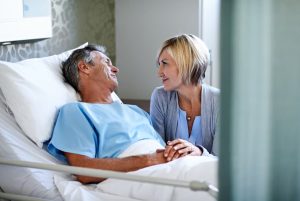
Balancing Service and Science: How Military Experience Shapes Dr. Avishek Kumar’s Approach to Cancer Care
For Avishek Kumar, MD, the journey into cancer care began with a deep family history of healthcare and took shape during his years of military
HIPAA Alert: Potential Data Breach Learn More
Questions on Oncology, Hematology and/or Infusion Clinical Services due to COVID-19 Crisis – CALL 833-698-1623
Important Information for Our Patients Regarding the Coronavirus.
RCCA Providing Area Cancer Patients with Access to Care During Coronavirus Outbreak
RCCA Offering Patients Virtual Visits During Coronavirus Pandemic
Outdoor grilling is a prime summer pastime and, indeed, an increasingly popular way of cooking year-round. Many people enjoy the extra flavor that charring brings to a hot dog, burger, or brisket. Few realize, however, that this can raise their risk for certain types of cancer. Fortunately, there are ways to grill safely. Regional Cancer Care Associates (RCCA) is one of the nation’s largest networks of cancer specialists, serving patients in New Jersey, Connecticut, Massachusetts, and the Washington, D.C., area. Here, we explain the relationship between grilling and cancer and offer tips to reduce your risk.

No. Grilling does not cause cancer directly. It can, however, increase a person’s risk of developing cancer. Cooking meat over any open flame, or even intense heat, can introduce carcinogens into the food. Carcinogens are substances that have been linked to higher cancer occurrences. Grilling has been linked to two main carcinogens:
Some carcinogen exposure is not an automatic guarantee of developing cancer. Repeated exposure, however, may increase a person’s risk of cancer later in life. This is especially true for individuals who are already at a higher risk for the disease.
Anybody can develop cancer. Research has shown, however, that certain risk factors can increase a person’s chances of cancer. The most significant risk factors include:
These risk factors apply to most types of cancer. Specific types of cancer, such as breast cancer or lung cancer, also have their own unique risk factors. It is important for at-risk individuals to reduce whichever risk factors are within their control. This includes taking precautions while grilling.
Fortunately, there are several measures grillers can take to reduce their carcinogen exposure. The American Institute for Cancer Research (AICR) recommends the following steps when grilling:
First, avoid processed meats. Even small amounts of processed meat, including hot dogs, sausages, ham, and bacon, can increase a person’s risk of colon cancer when eaten regularly. Similarly, eating large amounts of red meat can also increase colon cancer risk. The safest choices are, therefore, seafood or fresh white meats like chicken.
One of the major grilling carcinogens, PAHs, is produced by burning fat. Therefore, less fat creates fewer carcinogens. Grillers can choose naturally lean meats to reduce their cancer risk, or they may trim fat before cooking. They should also cook meat in the center of the grill and flip it frequently. This will limit the burning of any remaining fat.
Vegetables do not contain the muscle proteins that react with heat to create carcinogens, particularly HCAs. Therefore, adding vegetables to a meal can be an effective way to reduce carcinogen exposure. The AICR recommends filling at least two-thirds of the plate with plant-based foods. As a bonus, this creates a healthier nutritional balance and a more colorful dish.
Grillers can also reduce carcinogens by marinating their meat. The marinade forms a barrier between fats and heat. In addition, many marinades feature antioxidant ingredients that can protect against production of carcinogens. For best effect, use a vinegar-, citrus-, or wine-based marinade, and let the meat soak for at least 30 minutes.
The longer food is exposed to heat and flame, the more carcinogens are produced. To reduce cooking times, grillers are encouraged to use smaller cuts. Thin-sliced meats and burgers will cook through faster than thick steaks. Alternatively, mix small pieces of meat with cut vegetables in a grilling pan or on kebabs.
Of course, small pieces aren’t always preferable. At times, grillers may want to serve a big steak. When cooking thicker cuts, it can help to pre-cook the meat in the oven or on the stove. While the meat can be finished on the grill to create the desired char, pre-cooking will reduce how long meat is exposed to an open flame.
While grilling can increase a person’s cancer risk, it remains safe with the right precautions. Find out more about cancer risks and how to reduce them at Regional Cancer Care Associates. We serve patients at more than 20 locations across New Jersey, Connecticut, Massachusetts, and the Washington, D.C., area. To learn more about cancer and grilling, contact us today at an RCCA location near you.
Does grilling food cause cancer?
Grilling does not directly cause cancer. Cooking meat over high heat can, however, introduce cancer-causing agents into the food. This can increase your risk of developing cancer, including colorectal cancer. You can reduce your cancer risk by selecting non-processed, non-red meats, using small cuts or pre-cooking large ones, marinating, and mixing grilled meats with vegetables.
What is colorectal cancer?
Colorectal cancer is cancer that forms in the colon (large intestine) or the rectum. It is one of the most commonly diagnosed cancer types in the United States. Eating a diet with a lot of processed meats, which often contain preservatives, has been linked to increased colorectal cancer risk.
What screening options are available for colorectal cancer?
Colon cancer screening is an important component of early detection. Screening options include colonoscopy, flexible sigmoidoscopy, and computed tomography (CT) colonography. Ask your doctor about these screenings.
What cancer types are treated at RCCA?
RCCA’s medical oncologists and hematologists have expertise in treating all forms of cancers, including colorectal, breast, lung, prostate, and more. They also treat blood disorders. RCCA’s conveniently located, community-based offices provide patients with access to the most advanced treatments, including targeted therapy and clinical trials.
For more information or to schedule an appointment,
call 844-346-7222. You can also schedule an appointment by calling the RCCA location nearest you.

For Avishek Kumar, MD, the journey into cancer care began with a deep family history of healthcare and took shape during his years of military

Physical therapy is well known for its role in helping patients recover from sports injuries, surgeries, and orthopedic conditions. Many people may not realize that

Colon cancer is often treated with surgery, which can have a long recovery period. When patients understand what to expect, they feel more confident about

Regional Cancer Care Associates is one of fewer than 200 medical practices in the country selected to participate in the Oncology Care Model (OCM); a recent Medicare initiative aimed at improving care coordination and access to and quality of care for Medicare beneficiaries undergoing chemotherapy treatment.